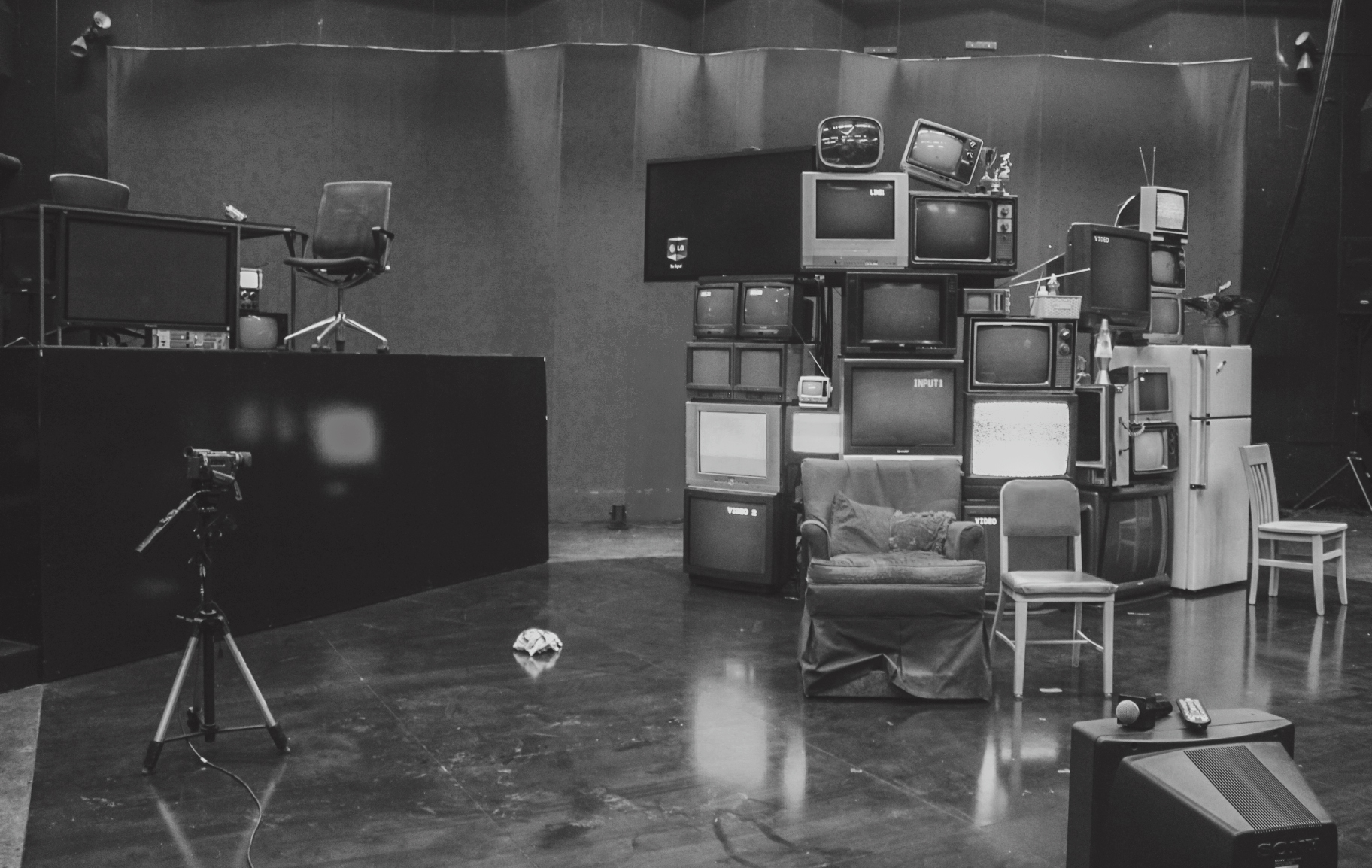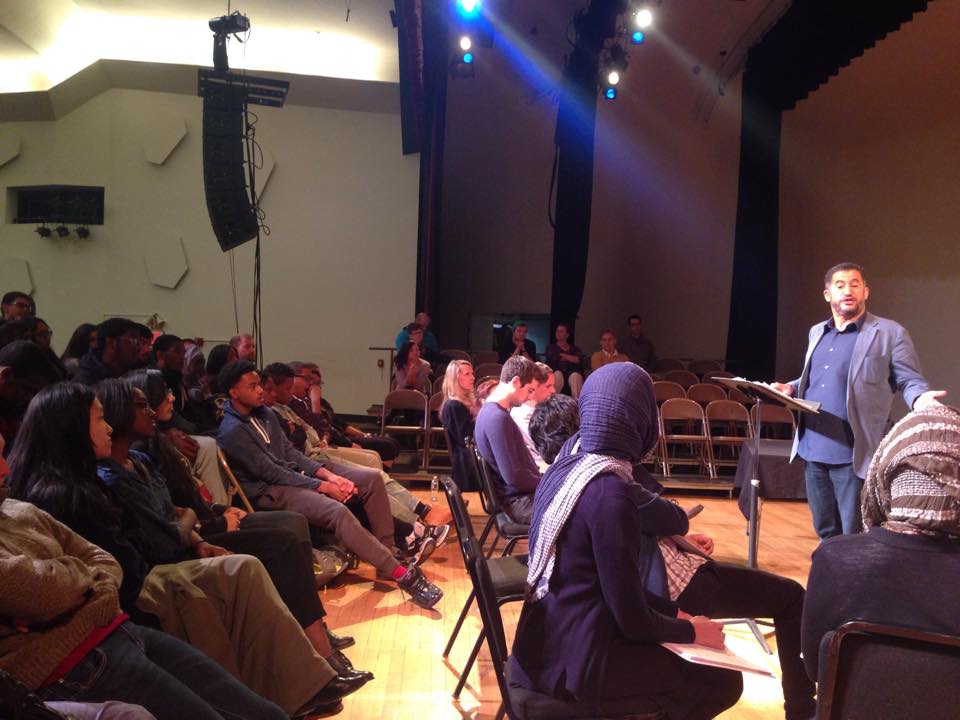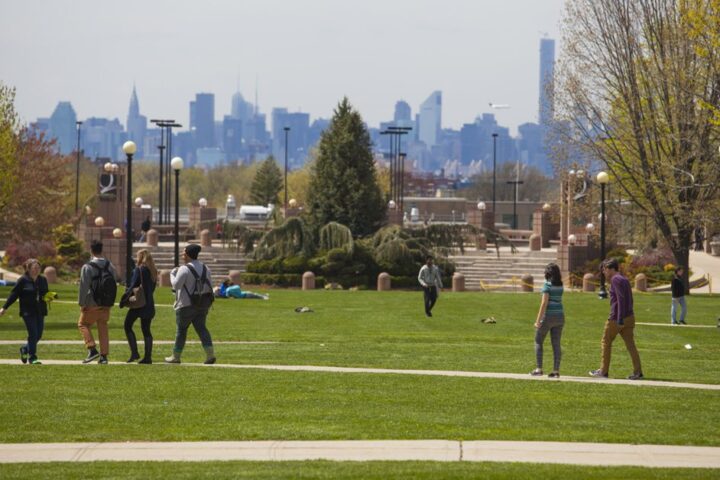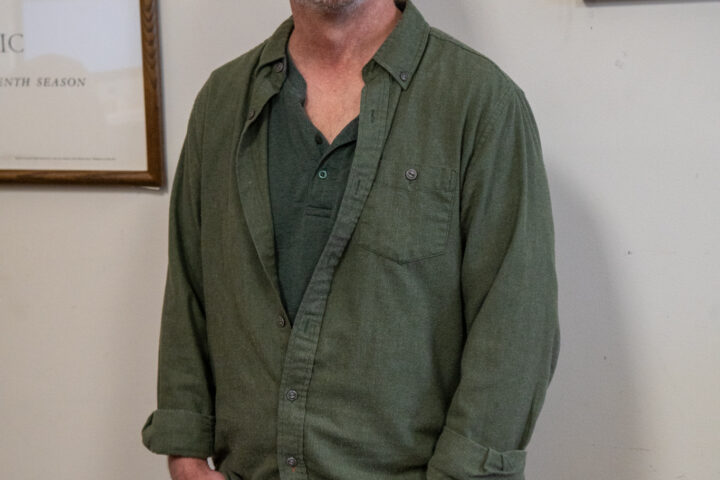
How far is one willing to go for their five minutes of fame?
This question is answered in the dark comedy “Our House,” presented by Queens College’s Drama, Theatre, and Dance Department.
The show, written by Theresa Rhebeck, was held in the small performance room in Rathaus Hall, which gave the piece an intimate feeling.
Before the show, audience members viewed multiple television sets onstage, broadcasting news segments from the past, which were later utilized in the show. An interesting addition to the show was the usage of video equipment to project real-time segments of characters onto the onstage TVs.
The biggest challenge was operating the televisions simultaneously, director Susan Einhorn said.
The TVs were an innovative addition in the production. While they were not included in the original off-Broadway production, they added an interesting component to the show without upstaging the actors.
“Our House” presents two central conflicts. The first encompasses a face-off between the head honcho of a television network, Wes, played by Ryan Sett, and the leader of the network’s news department, Stu, played by Aaron Orlo, in Los Angeles. The other surrounds the unemployed graduate student Merv, played by James Terrell, and his roommate Alice, played by Amanda Akran, in their house in St. Louis.
The scenes switch between storylines rapidly, but the themes are similar in both of them – television is a vapid, soul-sucking corporation. Both Merv and Wes are somewhat sociopathic in that they have skewed perceptions of the world. Wes obsesses over increasing the viewers for his network and will do anything to gain more numbers and Merv does something incredibly shocking at the end of the first act in order to be in the spotlight.
In the second storyline, Merv is a couch potato who watches a lot of television, doesn’t pay his rent on time, eats his roommates’ food and argues with Alice, who wishes for a TV-free life, about everything. Their roommates Grigsby, played by Brittany Berke, and Vince, played by Shunichi Kamiyama, remain neutral in the arguments.
In the second act, both narratives are brought together seamlessly when an incident in Merv’s house requires the bubbly news reporter Jennifer Ramirez, played by Rina Dutta, to report live from St. Louis.
The scenes following illustrate how ridiculous and savage the media has become. Jennifer and Wes decide to hold an interview with Merv even at the cost of saving a life.
“That’s the equation. Violence equals TV time,” Mery said to Jennifer in the interview.
He adds that the human race is moving to its end due to the contemporary infatuation of entertainment.
“Our House” brings an important issue to light: separating from a media-obsessed culture before it leads to humanity’s demise.
“Abandon your screens, look each other in the eyes, and search for something real, before it’s too late,” Einhorn said in a note in the show’s program.
The performance captured the attention of the audience filled with students.
“I thought it was great. The acting was on point and it was not overdone at all. I was interested the entire time and wasn’t bored,” Alyssa Shapiro, sophomore, said.
“Our House” continues this weekend on Nov. 6 and 7 at 7 p.m., Nov. 8 at 8 p.m., and Nov. 9 at 3 p.m.













